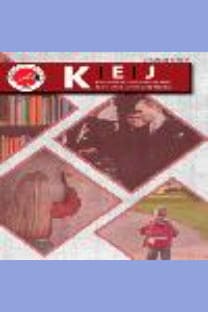PROBLEM KURMA DENEYİMLERİ VE MATEMATİK ÖĞRETİMİNDE AÇIK-UÇLU SORULARIN KULLANIMI
Bu çalışmanın temel amacı matematik öğretiminde kısa açık uçlu soruların ve problem kurma yaklaşımının kullanılmasının matematiksel kavramları anlamaya ve öğrenmeye olan etkisini araştırmaktır. Araştırmanın çalışma grubu iki ayrı ilköğretim okulunda çalışan üç tane ilkokul beşinci sınıf öğretmeni ve onların toplam 84 öğrencisinden oluşmaktadır. Araştırma 2004-2005 eğitim öğretim yılı ikinci yarı yılında Ankara’nın Yenimahalle ve Keçiören ilçelerinde bulunan iki ilköğretim okulunda gerçekleştirilmiştir. Bu çalışmada, öğretimlerinde açık-uçlu kısa matematik soruları kullanan bu öğretmenlerin, öğrencilerin matematiksel kavramları değişik yollarla anlayabilmelerini ve düşüncelerini farklı şekilde ifade edebilmelerini sağlamak amacıyla yaptıkları çalışmalar ele alınmaktadır. Ayrıca problem kurma yaklaşımı ile yapılan bir öğretim sonucunda öğrencilerden elde edilen verilerin bir sınıflandırması yapılmıştır.
Anahtar Kelimeler:
Problem kurma yaklaşımı, ilkokul öğretmenleri, açık-uçlu sorular.
PROBLEM POSING EXPERIENCES AND USING OPEN-ENDED QUESTIONS IN MATHEMATICS TEACHING
The main purpose of this study is to explore effects of using short open-ended mathematics questions in mathematics education and of using problem posing approach on understanding and learning mathematical concepts. The participants for this study included three elementary school 5th grade teachers from two different elementary schools and their 84 students. This study was undertaken during the 2004-2005 school years’ second semester in Yenimahalle and Keçiören districts of Ankara between April and May. In this study, experiences of these teachers who used short open-ended mathematics questions to make their pupils understand mathematical concepts and to express their thinking by different ways are considered. Furthermore, after a teaching via a problem posing approach, the gained data are classified.
___
- AÇIKGÖZ, K.Ü. (2003), Aktif Öğrenme, Eğitim Dünyası Yayınları,3. Baskı, İzmir.
- BENSON, G. D. (2001) Science Education from a social Constructivist Position: A Worldwiev, Studies in Philosophy and Education, Vol 20, 443-452.
- CAROLL, W. M. (1999). Using short questions to develop and assess Reasoning. In L.V. Stiff & F.R. Curcio (Eds.), Developing and mathematical Reasoning in grades K-12, 1999 Yearbook (pp. 247-255). Reston, Va: NCTM.
- CHANG, S. C., Kaur, B., Koay, P. L. & Lee, N. H. (2001). An exploratory analysis of current pedagogical practises in primary mathematics classroom. The NIE Researcher, 1 (2), 7-8.
- COBERN, W. W. (1993).Constructivism, Journal of Educational Psychological Consultation, Vol 4 (1),105-120.
- ENGLISH, L. (1998). Children’s Problem Posing within formal and Informal Contexts, JRME, January, p. 83.
- FOONG, P. Y. (1990). A metacognitive-heuristic approach to mathematical problem solving, Unpublished doctoral dissertation. Monash University. Australia.
- FOONG, P. Y. (2004). Using Short Open-ended Mathematics Questions to Promote Thinking and Understanding, National Institute of Education, Singapore, 135-140.
- GRANDSARD, F and SCHATTEMAN, A. (1989). Problem Solving for First Year University Students, in: “Modelling, Applications and Applied Problem Solving”, eds Blum, Niss & Huntley, 1989, p. 177-183.
- KANTARLI, K. (2004). Fizik Eğitiminde Problem Çözme Stratejisi ve Probleme Dayalı İşbirlikçi Öğrenme
- KORKMAZ, E., Gür, H., Ersoy Y. (2004). Problem Kurma ve Çözme Yaklaşımlı Matematik Öğretimi-II, Matematikçiler Derneği Bilim Köşesi, Okuma sayısı 403.
- MATTHEWS, M. R. (2002). Constructivism and Science Education: A Further Appraisal, Journal of Science Education on Technology, Vol 11 (2), June, 121-134.
- MESTRE, J. P. (1991), Physics Today, September, s. 56.
- MOE (2000), Revised syllabus for primary mathematics. Curriculum Plannning and Development Division. Ministry of Education . Singapore.
- NCTM (1991). Principals and Standarts for School Mathematics, Reston, Va: National counsil of Teachers of Mathematics Pub.
- NIXON-PONDER, S. (2001). Teacher to Teacher: Using Problem Posing Dialogue in Adult Literacy Education. (http://literacy.kent.edu/quasis/pubs/0300-8.htm)
- SCHOENFELD, A. H. (1985). Mathematical Problem Solving, New York: Academic Pres.
- SENEMOĞLU, N. (2002). Gelişim, Öğrenme ve Öğretim,(Kuramdan Uygulamaya),Gazi Kitabevi, Ankara.
- SILVER, E. A. (1994). On mathematical Problem Posing, For te Learning of Mathematics, February, 19-28.
- SILVER, E. A., Cai , J. (1996). Analysis of aritmetic problem posing by middle school…, Journal for Research in Mathematics Education, 27, Nov., p. 521.
- Van Den HEUVEL-PANHUIZEN, M (1986). Assesment and realistic mathematics education. Utrecth: CD-B Pres/ Freudental Institute, Utrecht University.
- ISSN: 1300-8811
- Yayın Aralığı: Yılda 4 Sayı
- Başlangıç: 1992
- Yayıncı: -
Sayıdaki Diğer Makaleler
Haluk ÖZMEN, Orhan KARAMUSTAFAOĞLU
ÖN ÖRGÜTLEYİCİLER VE ÖĞRETİMDE KULLANIMLARI
BALIKESİR İLİNDEKİ LİSANSLI ATLETLERİN SOSYOEKONOMİK DURUMLARI ÜZERİNE BİR ARAŞTIRMA
Zekeriya GÖKTAŞ, Yaprak KALEMOĞLU, Murat ÖZMADEN, Ahmet PEKEL
GIDALARDAKİ KORUYUCU MADDELERİN DROSOPHİLA MELANOGASTER’DE MWHXFLR ÖMÜR UZUNLUĞUNA ETKİSİ
Rabia SARIKAYA, Şükran ÇAKIR, Kemal SOLAK
Murat DEMİRBAŞ, Rahmi YAĞBASAN
MATEMATİK ÖĞRETMEN ADAYLARININ İSPAT YAPMAYA YÖNELİK GÖRÜŞLERİ
Sevgi MORALI, İşıkhan UĞUREL, Elif TÜRNÜKLÜ, Sibel YEŞİLDERE
H.alper GÜNGÖRMÜŞ, A.azmi YETİM, Cemal ÇALIK
OKULLARDA VERİLEN REHBERLİK HİZMETLERİNİN PROBLEM ALANLAR
